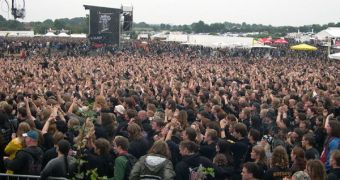The new invention, devised by music professor Jason Freeman, is said to be one of the most innovative products in a long time to hit the market. Basically, it offers users the possibility to participate in the creation of music scores, and not just by giving hints to professional musicians, but by actually moving the notes in the songs themselves. All of this happens on a website, where all the notes for all songs of interest are listed as small colored blocks. This should be very familiar to those who have worked with loops before, as the same basic principles apply.
Once the users are logged in, they will have the possibility to move the blocks around, so as to rearrange their composition in any way they see fit. The website even offers them the capability to download their creations as mp3 tracks, or to share them with other friends over various social networking websites. They can also be listed as conventional music scores, which means that a regular orchestra will be able to play them. If they are good, that is.
“You can go and listen to a musician play at the concert, but you can also get involved by going to the companion Web site. On the Web site you’re able to look at musical fragments, the little building blocks that make up the Etudes, and rearrange them however you want. I developed Piano Etudes because I have grown increasingly dissatisfied with the distinctions that get drawn between people that compose music, people who perform music and people who only get to listen to music. For me, these distinctions seem artificial,” Freeman says.
“What a modern etude meant to me was the ability for the pianist and Web site participants to take part in the composition process. The performer’s task really becomes interesting then, because the musician must take all of these possibilities and make the piece his or her own,” he adds.
The music professor sets himself as an example, saying that the only time he feels complete is when he composes, creates and performs his own music, instead of waiting for others to do it for him. “When I do all of those things, I listen to music differently. I’m more involved in it and it is much more fulfilling. I am hoping others will share in this experience through Piano Etudes and many of my other works,” he concludes.

 14 DAY TRIAL //
14 DAY TRIAL //